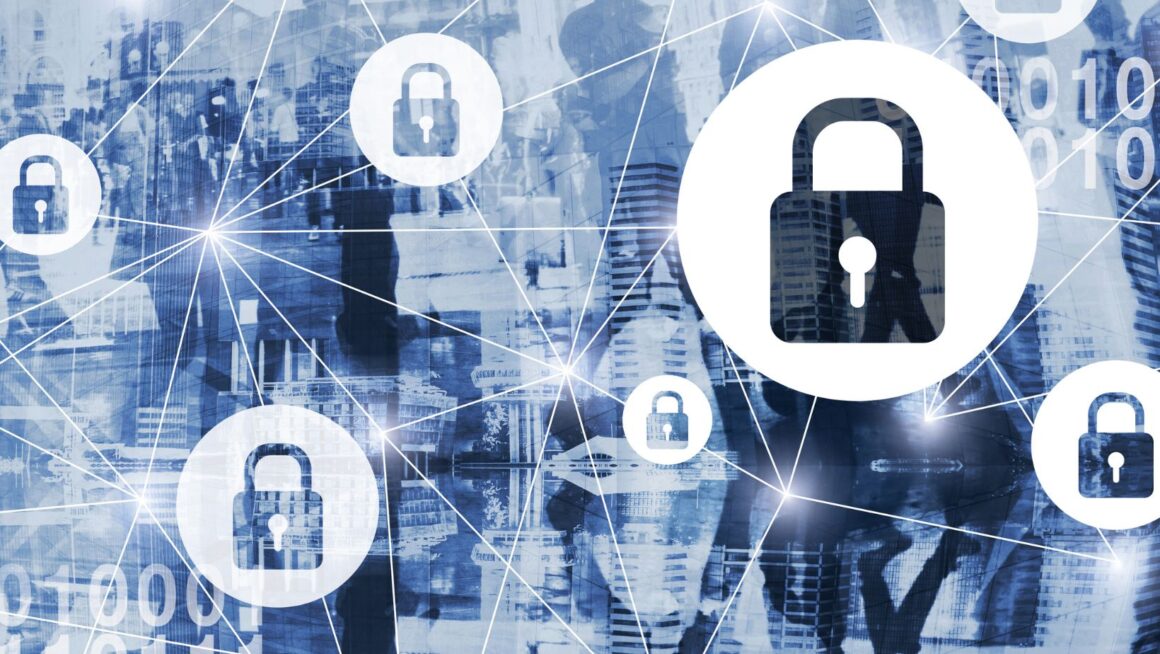In today’s digital world, protecting information is very important. Cybersecurity is about keeping our computers, networks, and data safe from bad people who want to steal or damage them. As technology grows, the need for cybersecurity professionals increases. One key way to show that you are skilled in this field is through cybersecurity certifications. Let’s explore why these certifications are essential in today’s job market.
Understanding Cybersecurity
Cybersecurity is like having a security guard for your computer systems. Just like a guard keeps a building safe, cybersecurity experts protect digital information. They prevent hackers from breaking in, stop viruses from damaging systems, and ensure that data remains confidential. As more businesses rely on technology, the need for cybersecurity has never been higher.
The Growing Importance of Cybersecurity
Every day, we hear about data breaches and cyberattacks in the news. Companies, governments, and individuals are at risk. Hackers can steal personal information, cause financial losses, and damage reputations. Because of this, businesses are investing more in cybersecurity to protect themselves. They need skilled professionals who can manage these threats.
The increase in cyber threats has made cybersecurity a hot job market. Many companies are looking for individuals who can help them secure their data. As a result, having cybersecurity certifications can give job seekers an edge over others.
What Are Cybersecurity Certifications?
Cybersecurity certifications are official credentials that prove a person has specific knowledge and skills in cybersecurity. There are many different certifications, each focusing on various aspects of cybersecurity. Some popular certifications include:
- CompTIA Security+: A basic certification that covers essential security concepts.
- Certified Information Systems Security Professional (CISSP): An advanced certification for experienced security professionals.
- Certified Ethical Hacker (CEH): Focuses on understanding hacking techniques to defend against them.
- Certified Information Security Manager (CISM): Designed for managers who want to understand risk management and security.
These certifications show employers that you are serious about your career in cybersecurity. They also demonstrate that you have taken the time to learn and master important concepts in the field.
Why Employers Value Cybersecurity Certifications
In today’s job market, cybersecurity certifications hold significant weight for employers. They appreciate these credentials for several compelling reasons that go beyond just a piece of paper.
Demonstrated Knowledge: First and foremost, certifications serve as proof that you have a solid understanding of cybersecurity principles. This isn’t just about passing an exam; it reflects your commitment to learning and mastering the complexities of protecting information systems. When employers see certifications on your resume, they know you’ve invested time and effort into gaining the knowledge necessary for the job.
Staying Updated: The world of cybersecurity is like a fast-paced game of cat and mouse. New threats and technologies emerge regularly, making it crucial for professionals to stay ahead. Certifications often require ongoing education and training, which ensures that certified individuals are in tune with the latest trends and tactics in cybersecurity. Employers value this adaptability because it means their teams can effectively respond to evolving challenges.
Credibility: When you earn a certification from a recognized organization, it adds a layer of credibility to your resume. This recognition tells employers that you possess the skills and knowledge to perform well in your role. It’s not just about what you say you can do; it’s about what a respected institution says you can do. This credibility is essential in a field where trust is paramount.
Competitive Advantage: In a crowded job market, standing out can be tough. Certifications give candidates a competitive advantage, setting them apart from those without formal credentials. Many employers actively seek out those certified in cybersecurity because it reduces the training time required for new hires. This efficiency is appealing to employers looking to build strong teams quickly.

Higher Earning Potential: Finally, let’s talk about the numbers. Studies consistently show that certified cybersecurity professionals tend to earn more than their non-certified peers. This correlation between certification and higher salaries highlights the return on investment in pursuing these credentials. By becoming certified, you’re not just enhancing your skills; you’re also opening doors to better salary opportunities and career advancements.
The Path to Certification
Becoming certified in cybersecurity usually involves several steps. Here is a general path that many follow:
- Education: A degree in computer science, information technology, or a related field can be helpful. However, some people succeed in cybersecurity without a formal degree.
- Gain Experience: Many certifications require some work experience in the field. Entry-level positions in IT or network security can provide the necessary background.
- Choose a Certification: Decide which certification you want to pursue based on your career goals. Research different certifications to see which ones align best with your aspirations and the specific skills you want to develop. For those who want to stand out in the job market, being certified in cybersecurity is a significant advantage.
- Study: Use books, online courses, and study groups to prepare for the exam. Many resources are available to help you succeed.
- Take the Exam: Once you feel ready, register and take the certification exam. Passing the exam earns you the certification.
- Maintain Your Certification: Most certifications require you to continue learning and renew your certification after a certain period. This ensures you stay up to date in the fast-paced world of cybersecurity.
Benefits of Being Certified in Cybersecurity
Being certified in cybersecurity can provide many benefits. Here are some of the most significant advantages:
Increased Job Opportunities
With the rising demand for cybersecurity professionals, certifications can lead to more job openings. Companies are actively seeking individuals with proven skills. Certified individuals are often more appealing to employers, leading to better job prospects.
Career Advancement
Having cybersecurity certifications can open doors for career advancement. Many organizations have specific requirements for promotions, and certifications can help you meet those standards. They show that you are committed to your professional growth.
Networking Opportunities
When you earn a certification, you often gain access to professional networks. Many certification organizations offer forums, events, and resources to connect certified professionals. Networking can lead to job referrals and new career opportunities.
Confidence in Skills
Preparing for and earning a certification boosts your confidence. You gain a deeper understanding of cybersecurity concepts, which helps you in your job. This knowledge enables you to tackle challenges more effectively.
Job Security
As cybersecurity threats continue to grow, companies will need skilled professionals to protect their assets. Having a certification can provide job security in a field that is in high demand. Employers are less likely to let go of employees with proven skills and knowledge.
Real-World Examples
Many companies value cybersecurity certifications when hiring. For example, large tech firms like Microsoft and Google often look for candidates who are certified. In addition, government agencies, financial institutions, and healthcare organizations prioritize cybersecurity expertise due to the sensitive nature of their data.
Consider the case of Sarah, who was looking for a job in cybersecurity. She had a degree in IT but no certifications. After completing the CompTIA Security+ certification, she landed an interview at a tech company. The hiring manager was impressed by her certification, which led to her being hired for a junior cybersecurity analyst role. Sarah’s certification made a significant difference in her job search.

Similarly, John worked as a network technician. He decided to pursue a Certified Ethical Hacker (CEH) certification. After obtaining it, he applied for a cybersecurity position at a financial firm. His certification set him apart from other candidates, and he received an offer. John’s story shows how certifications can help individuals transition to more advanced roles in cybersecurity.
Challenges in Obtaining Certifications
While cybersecurity certifications can be beneficial, the journey to obtaining them may come with challenges. Here are some common obstacles:
Cost of Certification
Certifications often come with a financial cost. Exam fees, study materials, and training courses can add up. However, many organizations offer financial assistance or reimbursement programs for employees seeking certifications.
Time Commitment
Preparing for a certification exam requires a significant time investment. Balancing work, study, and personal life can be challenging. Creating a study plan and setting specific goals can help manage this commitment.
Complexity of Material
Some certification topics can be complex and difficult to understand. It’s essential to approach these subjects with patience and use multiple resources to grasp the material fully. Joining study groups or forums can provide additional support.
Fear of Failure
Many people fear failing the certification exam. However, it’s essential to remember that many individuals do not pass on their first attempt. Preparing thoroughly and having a positive mindset can help alleviate this fear.
Conclusion
In today’s job market, cybersecurity certifications matter more than ever. As businesses continue to face increasing threats, they need skilled professionals to protect their data and systems. Certifications provide a way for individuals to demonstrate their knowledge and skills, making them more attractive to employers.
The path to certification may have challenges, but the benefits are well worth the effort. Certified professionals enjoy increased job opportunities, career advancement, and greater job security. If you are considering a career in cybersecurity, pursuing certifications is a smart choice.
As you explore the field, remember that becoming certified in cybersecurity is not just about passing an exam. It’s about gaining the knowledge and skills necessary to protect our digital world. In an era where cybersecurity threats are constantly evolving, being certified is a valuable asset that can lead to a successful and fulfilling career.



